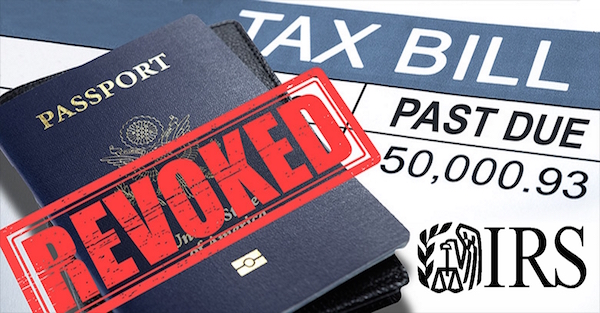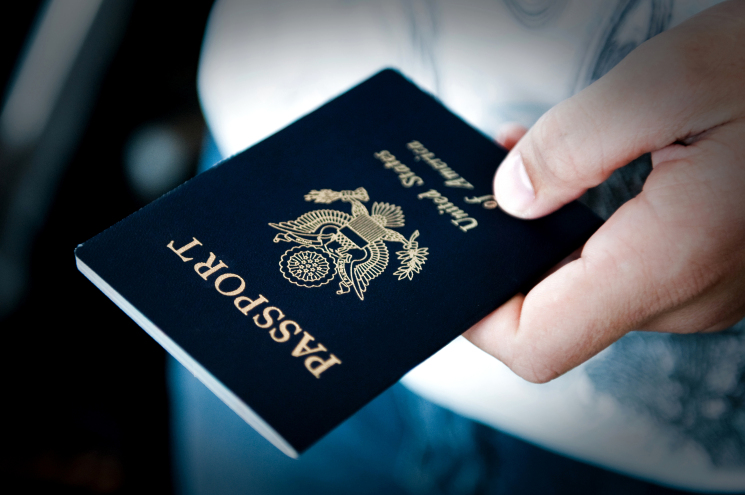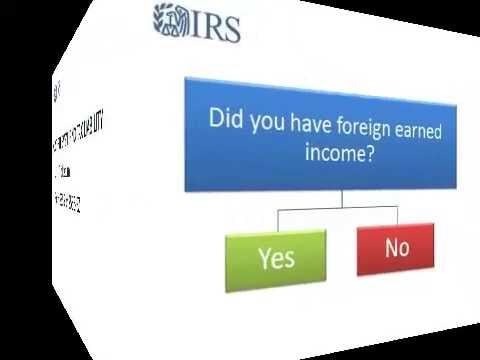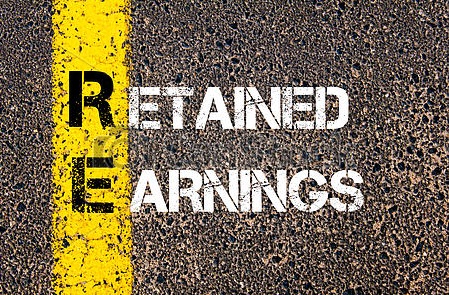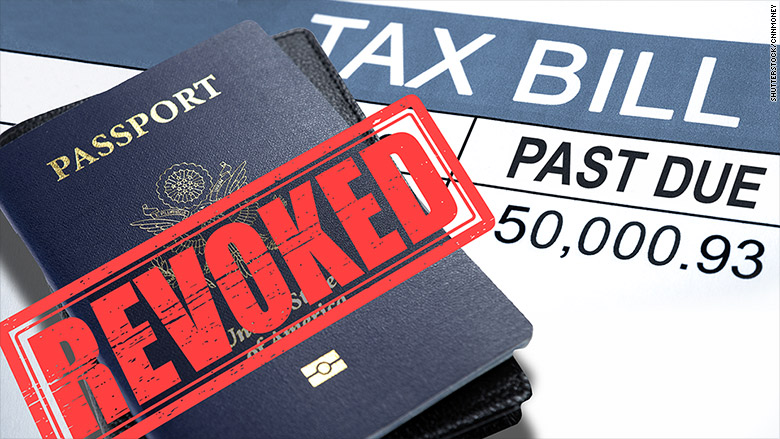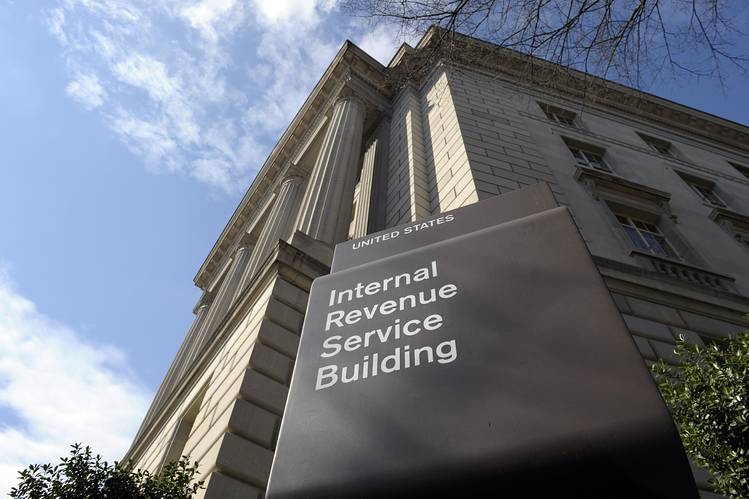Let’s say you have filed all of your delinquent returns, and the foreign-earned income exclusion, along with the other suggestions in this book, and did not eliminate your entire U.S. tax bill. Now the IRS is at your door…what should you do?
Step One: Know your risks
First, you must understand that the IRS can levy your U.S. bank account, and possibly your foreign bank accounts, put a lien on any real estate in the United States, and possibly take your real estate outside of the U.S.
Levy: A Tax levy, under United States Federal law, is an administrative action by the IRS under statutory authority, without going to court, to seize property to satisfy a tax liability. A levy is generally used to take money out of your bank account.
Lien: A tax lien is a lien imposed by the IRS upon real estate or other property to secure the payment of taxes. It may allow the IRS to seize your property. If you sell the property, the proceeds from the sale go first to the IRS to settle your debt, and then the remainder comes to you. An IRS lien comes after any preexisting liens, such as a first or second mortgage.
Here are several questions to consider if owe money to the IRS:
- Did you know that the IRS can levy your foreign bank account if your bank has a branch in the U.S.?
- Did you know that the IRS may be able to levy your paycheck if your parent company is a U.S. entity?
- Did you know that the IRS can seize real estate in certain countries, such as France?
- Did you know that moving money out of the U.S. to avoid an IRS levy, even if you live abroad, can be a crime?
- Did you know that failure (refusal) to pay taxes can be a crime, in very specific circumstances?
Once your debt to the IRS becomes final and payable, the Service will attempt to mail four collection letters demanding payment. After sending those letters, whether or not you received them, the IRS can levy any U.S. bank account. This means they can take up to the amount of the debt out of your account(s). For example, if you owe $30,000, and you have $20,000 on the bank, they get $20,000. If you owe $30,000, and have $35,000, they get $30,000.
In addition, the IRS can levy any foreign account, so long as your bank has a branch in the U.S. For example, if you are living in Mexico, and banking with HSBC, the IRS can issue a levy to a U.S. branch of HSBC, and it must be honored by the branch in Mexico…and your money is gone.
Of course, this can be avoided by banking with institutions that do not have branch offices in the United States.
Second, the IRS can take real estate in the U.S. or real estate in certain foreign countries. The IRS can seize property in any country where such a taking is provided for in the treaty, known as a Mutual Collection Assistance Requests (MCARs) clause. There are currently five treaty countries with which the IRS has ongoing programs for MCARs that may involve seizure and sale.
Third, the IRS can levy a bank account, or garnish your wages (take money out of your paycheck) in most countries with which it has a MCARs.
This means that anyone living in a MCARs country is at risk of having their assets seized, just as if they were living in the United States. The treaty partners and types of taxes covered for collection are as follows:
- Canada — All taxes
- France — Income, Estate and Gift, Wealth and other specified taxes
- Denmark — Income and other specified taxes
- Sweden — Income and other specified taxes
- Netherlands — Income and other specified taxes
Note: It is very rare for the IRS to seize real estate, especially one’s primary residence. This only happens after the IRS exhausts every other collection alternative, and the taxpayer refuses to cooperate. If you owe money, and can’t afford to pay, a tax attorney can negotiate a settlement that both you and the IRS can live with. As long as clients are honest and cooperate, the process is surprisingly painless. It is those who are unwilling to cooperate, or are too scared to do so, that get hit the hardest by the IRS.
Step Two : Negotiate
There are two basic options for those who owe the IRS, and are unable to pay:
1) An installment agreement; or
2) Offer in Compromise.
In an installment agreement, you agree to pay what you can afford each month, and the IRS agrees to stop collection actions while you make these payments. The IRS has 10 years to collect from you, thus your installment agreement can go on for several years.
In an Offer in Compromise, or OIC, you and the IRS agree to settle your debt for one lump sum, or payments over a few months. Let’s look at the OIC process in detail.
OFFER IN COMPROMISE
Everyone is well aware of the U.S. credit crunch, plummeting home values, and the generally tough economic situation. At the same time, the U.S. government is running at a staggering deficit and looking to the Internal Revenue Service (IRS) to bring in more cash by stepping up audits and collections.
Put simply, an OIC is an offer to settle your IRS tax debt for less than the total obligation because you cannot pay the debt in full over the “collection period.” Before you can request an OIC, all of your tax returns must be filed and you must pay a deposit of 20% of your offer amount.
Collection Period: In most cases, the IRS has 10 years to collect on a tax debt after it has been assessed. A debt is assessed when you file your returns, the IRS files returns for you, or an audit is finalized.
A settlement can be made in one lump sum, or over a number of months. However, it is more difficult and costly to get OICs approved that will pay over time, so a lump sum payment is the most practical option for most taxpayers.
During the OIC process, your objective is to convince the Service that you are paying them something that they would not otherwise get. To prove this claim, you are required to complete a detailed financial statement, listing all of your income, bank accounts, and assets. If your assets exceed your debt, your offer will not be accepted.
If you do not have sufficient assets to satisfy the debt, your income is compared to your allowed expenses to calculate your offer amount. For example, in 2012, a family of four living in San Diego, California is allowed to spend $3,142 per month for housing and utilities. The same family of four, living in Armstrong County, Texas, would be allowed only $1,427 per month, and $5,625 in New York County, New York.
If your income exceeds your allowed expenses, the difference, times 48 months, is added to your assets to determine your total offer amount.
For example, if you owe $100,000 to the IRS, the equity in your home, your only asset, is $20,000, and your net income after allowed expenses is $1,000 per month, your total offer amount is $68,000 ($1,000 x 48 = $48,000 + $20,000), or 68% of the debt.
Expats & Allowed Expenses: When negotiating with the IRS, you are allowed to spend fixed amounts on housing, utilities, automobile, health care expenses, food, clothing, and other living expenses. Collection Financial Standards are published for U.S. residents, but none have been created for those living abroad. Therefore, every aspect of an expats financial statement must be negotiated. For more information on the Collection Financial Standards, visit www.irs.gov/individuals/article/0,,id=96543,00.html
INSTALLMENT AGREEMENT
Let’s say you owe $10,000, $30,000, $100,000 or more to the IRS and your assets exceed your debt. You are working full time abroad, but you have no savings to pay off the IRS. Can you pay off your debt over time?
Yes. In fact, almost every client onshore or offshore client I have worked with in the last 10 years, who has requested an installment, has been approved…eventually. The trick is always the same: getting to a number that both you and the IRS can live with.
If you owe taxes to the IRS, but can’t afford to pay it off all at once, and you don’t qualify for (or can’t afford) an Offer in Compromise, then you can usually set up a payment plan, called an “Installment Agreement” in IRS lingo. The amount you will need to pay each month is based on a number of factors, including:
- Your income;
- Your assets;
- The amount you owe;
- Your actual expenses;
- Your allowed expenses;
- The remaining collection statute of limitations; and
- Whether or not you can afford to pay off the debt in full over the collection statute.
The key to setting up an Installment Agreement is the analysis of these and other factors, and thereby proving to the IRS how much you can afford to pay each month.
Here are the basics of an IRS Installment Agreement.
The IRS will enter a written agreement with you which requires installment payments based on the amount you owe and your ability to pay it within the period of time the Service has to collect from you (the “statute of limitations,” as it is called). The IRS has 10 years to collect from you once you filed a return. When the 10 years are up, the debt is canceled and you get a fresh start.
Depending on the amount of tax due, there are different options within the program (see below).
To apply for an Installment Agreement, you usually need to file Form 9465 and Form 433-A or Form 433-F (versions of the IRS Financial Statement, the key form when dealing with IRS collections at any level). If you are self-employed, or own a business, you may also need to file Form 433-B. A few people also need Form 433-D. If your Agreement is accepted, you will be charged a fee of $105 for a new agreement, or $45 for a reinstated agreement.
“What is a ‘reinstated agreement,’” you’d ask.
An Installment Agreement is binding. You must pay the amount agreed-upon on time, every month of the year. If you skip a payment, you usually have 30 days to catch up. If you are not able to get current with your payments, the Agreement is canceled. You may apply for a new Agreement, but your new proposal may be met with skepticism and can even be rejected. Worse, you must provide updated financial information, which may have very dire consequences if your income has increased or the person reviewing your data is less accommodating than the prior agent. If you’re lucky and it’s accepted again, then you’ll have a “reinstated agreement.”
There are two types of Installment Agreements, mandatory and discretionary. A “mandatory” agreement means that the IRS is required to accept the Agreement you propose if:
- You owe less than $10,000 (exclusive of interest and penalties);
- You’ve filed your tax returns and paid your due taxes on time during the past five years;
- You haven’t entered another Installment Agreement during those past five years;
- You demonstrate that you can’t pay the tax in full;
- You agree to pay the full amount you owe within a period of three years;
- You guarantee that you’ll comply with the tax laws during the term of the Installment Agreement.
If you meet all these criteria, the IRS doesn’t have the right to reject your Installment Agreement. An additional advantage of this type of agreement is that it doesn’t require the same in-depth financial verification that a normal application does.
If you owe more than $10,000, you need a “discretionary” Installment Agreement, which means that the IRS can deny you a payment plan if it deems it unsatisfactory. The IRS has to consider your Installment Agreement and will request you to prepare a Financial Statement (Form 433-A or Form 433-F). If the IRS concludes that more information is needed to evaluate the proposal, then it can request you to provide supporting documents or other proof of income and expense. If not supplied, the IRS can reject your application.
During the processing of your Installment Agreement (until you receive the notice about the result of your application) your stress level will lower considerably as the IRS is not allowed to collect from you. If your IRS installment agreement request is rejected, your case will be on hold for 30 days, giving you time to appeal. If you file a timely appeal, then the IRS can’t touch your property or money during the pendency of the appeal.
How much of my debt will I pay through an Installment Agreement?
The answer is that it depends on your ability to pay, the assets you have available, and the collection statute of limitations. If you have sufficient means then the IRS will require a Full-pay Agreement. This is when you pay your tax debt in full, including interest and penalties, over a period of time.
A Full-pay Installment Agreement may be for a fixed monthly amount, or it may increase at predetermined intervals. In each case, it will pay off the debt during the collection statute of limitations.
An IRS Installment Agreement where you pay a fixed amount each month until the debt is paid in full is easy to understand. An Installment Agreement where your monthly payments increase over time takes a bit of explaining.
As you know, your ability to pay the IRS is based in part on your income vs. your allowed expenses. When your actual expenses exceed your allowed expenses, you are generally given time to modify your lifestyle.
For example, you may be given six months to find a lower-cost apartment. If your current apartment exceeds your allowed rental expense by $400, the IRS may set up an Installment Agreement that will increase by $400 in six months’ time.
Another example is where your allowed expenses go down. The most common situation is where your automobile will be paid off, thereby reducing your allowed expenses. If your auto payment is $550 and your car will be paid off in eight months, you might set up an Installment Agreement that will increase by $550 in eight months’ time.
| Warning: What if you have unexpected repair bills, or need to purchase another car when this one is paid? You might be forced to default on the IRS Installment Agreement and need to start the process over…something everyone dreads.Careful analysis of your current and future finances, along with a solid understanding of IRS practice and procedure, prior to applying for an Installment Agreement can prevent these and other problems.For example, as a result of planning ahead, you might decide to purchase a new car, with a longer payoff period, before submitting your request. |
What if I can’t afford to pay off the IRS in full?
In the case you (1) do not have sufficient income to support a Full-pay Agreement, and (2) have no significant equity in assets or cannot sell or borrow against assets due to the fact that selling them will cause an undue hardship, then the IRS will grant a Partial-pay Agreement and you’ll pay off only a portion of your debt within the statute of limitations, with the remaining debt being canceled.
However, if you are granted a Partial-pay Agreement, you must provide updated financial information every two years to prove your continuing financial hardship.· If your income has increased, or your allowed expenses have decreased, you will be required to increase your monthly payment.
Still, there’s a third situation. You pay zero dollars. Is that possible? Sure. Basically, when you cannot afford an Offer in Compromise, you have no assets to use to pay the IRS, and your income equals your allowed expenses, you can’t afford to pay IRS anything.
A taxpayer in an Installment Agreement at zero dollars is referred to as being “temporarily uncollectable,” with temporarily being the operative word here.· As with a Partial-pay Installment Agreement, the IRS will review your financial situation periodically to see if it can start collecting from you. If your financial situation doesn’t improve and the statute of limitations runs out, then your debt is eliminated. In other words, if you prove to the IRS that you are uncollectable over the entirety of the collection statute of limitations, you have paid nothing and your debt expires.
IMPORTANT NOTE: While you are making installment payments to the IRS, penalties and interest accrue on the unpaid balance. Essentially, you are locked into a late-payment penalty of one quarter of a percent a month plus interest on the unpaid amount. Taken together, the cost comes at around 10% a year. It’s still less than the interest you pay on your credit card, but you need to think before you commit.
What if my Installment Agreement is rejected?
This may happen in one of the following cases:
(1) The information included in Forms 433-A or 433-B is incomplete or untruthful. If the IRS discovers that you have property or income not recorded on the forms then it will reject your application. Be careful here..your financial statement is signed under penalty of perjury, so it is very important to be truthful and very detailed in the information you provide to the government.
(2) The IRS deems some of your living expenses unnecessary. If you owe money to the government but nevertheless send your kids to private schools or drive expensive cars, then be prepared to get no deal at all. The IRS expects you to have quite a frugal life while paying off your debt.
(3) You defaulted on a prior Installment Agreement. It’s a matter of trust…if you’ve once defaulted on your payments then the IRS will think twice whether to grant you a second chance.
If your Installment Agreement is rejected, then you can appeal the decision. If the IRS sees your efforts to pay off your debt then your application may be reconsidered.
What if I need professional help with filing an Installment Agreement?
DON’T GET SCAMMED
So, why do you see so many claims on the Internet and television promising to settle your tax debt for pennies on the dollar? Because there are settlements like that, which are then used by a few unscrupulous promoters to mislead people into spending thousands of dollars to only have their OICs rejected.
Take the example above, but assume the tax debt is $1 million. It will still settle for $68,000, or about 15%.
If that same family owes $1 million, has lost their home, and their income does not exceed their allowed expenses, or the breadwinner is permanently disabled and unable to work, then total offer amount might be $1,000. This is a dream scenario for any national OIC marketing firm…the perfect client who can be used in their multi-million dollar advertising campaign!
I have had a few such clients over the years. For example, a 72-year-old retired person, who was living with family and on Social Security only, settled his debt of $150,000 for about $2,000.
Before hiring anyone, especially a national firm, you should check them out on the Internet. Here are a few suggestions:
- Click here to go to a review of American Tax Relief by the Better Business Bureau.
- Click here for a review of JK Harris by the Better Business Bureau. Click here to read what consumers have to say about JK Harris.
- Click here for a review on Roni Lynn Deutch by the Better Business Bureau. Click here to see what consumers have to say about Roni Deutch.
- Click here to read a review of TaxMasters, Inc. by the Better Business Bureau. Click here to read what consumers have to say about TaxMasters. For more opinions on TaxMasters, click here and here.
- Click hereto see what consumers have to say about Power Tax Relief. Click here to read a review of Power Tax Relief by the Better Business Bureau.
NOTE: Government figures show that 75% of Offers in Compromise are returned due to forms being filled out incorrectly; and of the 25% that are processed, approximately 50% of them are rejected. Add to this the complexities of expat negotiations, and it is clear quality representation is required…just be careful!
When do I need Help?
Many clients ask, “Do I need an attorney to help me deal with the IRS?” That’s a hard question and depends on your ability to negotiate, organize, and handle IRS paperwork. Some people are much more capable than others when it comes to handling their tax matters.
My standard answer is this:
- If you owe the IRS $24,000 or less, and can afford to pay $500 per month, just call them up and make that offer. If it is accepted, as it usually is, you do not need professional help.
- If you owe $24,000 to $99,000, you have an average sized case that will usually be handled by a centralized collection unit. While this size accounts for about half of my collection cases, they are easier to handle than larger cases…thus, we charge a lower fee.
- If you owe $100,000 or more, you have a large case and can expect the IRS to be very aggressive in collecting from you. I suggest that anyone with a debt in excess of $100,000 seek legal counsel immediately.
- Finally, you should decide if you need representation before contacting the IRS. It is very difficult to overcome mistakes and I generally do not take on cases after the documents have been filed. It’s like coming in to the game down by 21 points and being asked to bring the team back with five minutes to go.
Taxpayer’s Bill of Rights
In tough economic times, many business owners and self-employed people find it difficult or impossible to pay their federal taxes. When the debt is too large to pay, you then get the joy of negotiating with the Internal Revenue service.
Note: Of course, everyone has a hard time paying their taxes. Business owners and the self-employed are more likely to have large debts because many do not have taxes withheld from their paychecks, do not make quarterly estimates, and hope that there is enough cash in the business at the end of the year to keep the IRS at bay.
The following is a list of protections that taxpayers have when facing the IRS, known in the industry as the “Taxpayer’s Bill of Rights.” The first step in dealing with the IRS is to know these basic rights.
- Innocent Spouse Relief (Publication 971):
- Is available for all understatements of tax (previously, only substantial understatements) attributable to erroneous items (previously, only grossly erroneous items) of the other spouse.
- You must file this claim within two years of the IRS beginning collection action.
- You must show that the innocent spouse did not know and had no reason to know about the underpayment of taxes.
- Innocent Spouse can be claimed for any tax liability arising after July 22, 1998 and any tax liability unpaid as of that date.
- If Innocent Spouse is claimed and rejected, you can file a petition and go to tax court.
- The IRS can grant equitable relief to taxpayers who do not satisfy the above tests.
- If you filed a joint return, you can use innocent spouse as long as: 1) you are divorced or legally separated, or b) have been living apart for more than one year.
- The IRS must abide by the Fair Debt and Collections Practices Act, which includes not communicating with you at an inconvenient time or place. This right basically protects against harassment.
- The 10-year statute of limitations period on collection may generally not be extended if there has been no lien on any of the taxpayer’s property.
- The IRS must give you an installment agreement if:
- You owe less than $10,000,
- In the previous five tax years you have not 1) failed to file a tax return, 2) failed to pay any tax required to be shown on a return, and/or 3) entered into an installment agreement, and you
- Agree to full payment within three years.
- A supervisor must approve the issuance of a Notice of Lien or Levy or seizing of property.
- The IRS must notify you within five business days after the filing of a Notice of Lien and must include certain information in the notice, such as the amount of the tax and your appeal rights.
- Anyone who will be affected by the filing of a lien is entitled to a fair hearing with an Appeals officer who had no prior involvement with the unpaid tax that gave rise to the filing of the lien.
- You can get a certificate of discharge of a lien by depositing the amount in question with the IRS or you furnish a bond. You then have the right to sue to dispute the tax due.
- The IRS must release a wage levy once it is determined that your outstanding tax liability is uncollectible. This basically means that the IRS determines that you do not have the financial resources (cash flow after allowed business and personal expenses and assets) to pay the debt.
- You and third parties can sue for money damages for reckless or intentional disregard of the statutory collection provisions. This has been made easier because it includes negligence on the part of an IRS employee. You must first follow administrative remedies and you are limited to $100,000 for negligence and $1 million for intentional or reckless disregard.
- The IRS must notify you, 30 days before filing a levy, that you have a right to a hearing.
- You can then request an Appeals officer hear the case before the levy.
- You cannot challenge the underlying tax unless you had no previous opportunity to do so.
- If not resolved, you have 30 days to appeal to the U.S. Tax Court or Federal Court.
- Standards are provided exempting some personal property and tools of the trade from levy.
- Property can’t be sold below the property’s minimum bid price.
- Where no one is willing to pay the minimum bid price, the IRS can return the property or it is deemed to have paid that price.
- Generally, this is 80% or more of the forced sale value.
- If the amount of the debt is less than $5,000, the IRS cannot take your primary residence.
- The IRS cannot seize your principle residence without prior court approval.
- The IRS cannot reject an Offer in Compromise from a low income taxpayer solely on the basis of the amount of the offer.
- This does not apply to the self-employed.
- While you have an Offer in Compromise pending, and 30 days thereafter, the IRS cannot take your property or levy your bank account.
For additional information, please refer to these IRS publications:

